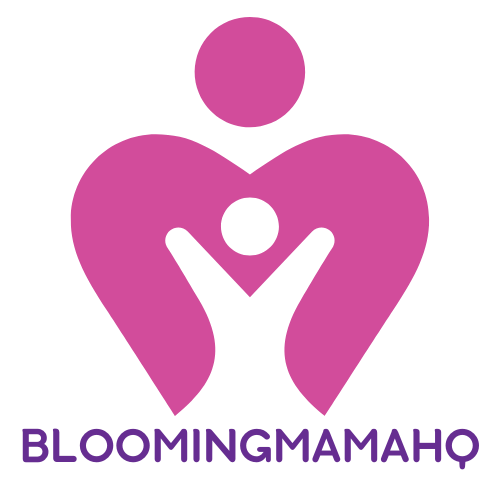In the bustling world of preschool education, learning can sometimes feel like a game of hide-and-seek. But what if those elusive lessons could be found on colorful worksheets? Preschool learning worksheets are like treasure maps, guiding little explorers through the exciting lands of numbers, letters, and shapes. They’re not just paper; they’re the secret sauce that makes learning fun and engaging.
Imagine a world where kids can practice their ABCs while doodling a dinosaur or tackle simple math problems while pretending to be superheroes. These worksheets turn mundane tasks into adventures, making it easier for parents and teachers to keep tiny hands busy and curious minds engaged. With the right worksheets in hand, every day can be a new opportunity for discovery and laughter in the classroom.
Table of Contents
ToggleOverview of Preschool Learning Worksheets
Preschool learning worksheets serve as vital tools in early education, enhancing engagement and enjoyment for young learners. These resources guide children through various learning adventures, making complex concepts approachable.
Benefits of Using Worksheets
Worksheets boost fine motor skills by encouraging children to trace and write. They provide structured learning experiences that reinforce knowledge of numbers, letters, and shapes. Furthermore, worksheets introduce critical thinking through puzzles and creative tasks. Increased focus on these activities leads to improved concentration and memory retention. Incorporating colorful themes and characters captures children’s attention, making learning more exciting. Through regular use, children gain confidence as they complete tasks successfully, fostering a positive attitude toward learning.
Types of Worksheets Available
Numerous types of worksheets exist, catering to varied learning objectives. Arithmetic worksheets introduce basic math concepts through addition and subtraction exercises. Language worksheets promote vocabulary development with engaging reading and writing activities. Coloring worksheets enhance creativity while reinforcing color recognition and fine motor skills. Sorting and matching worksheets encourage logical thinking by categorizing objects. Additionally, tracing worksheets support handwriting practice, allowing for the development of essential writing skills. Each type offers unique opportunities to enhance early learning experiences.
How to Choose the Right Worksheets

Choosing the right worksheets enhances preschool learning experiences. Specific factors to consider include age appropriateness and alignment with educational goals.
Age Appropriateness
Selecting age-appropriate worksheets ensures children engage effectively with the content. Worksheets designed for preschoolers typically use simple language and concepts. Activities should match developmental milestones. For instance, children aged three to four benefit from tracing shapes or simple letter recognition tasks. As children progress to four or five, worksheets can introduce basic arithmetic and more complex vocabulary. Always assess the difficulty level, prioritizing worksheets that foster skills without overwhelming young learners.
Educational Goals
Aligning worksheets with educational goals maximizes their impact. Clear objectives guide the selection process effectively. For literacy development, worksheets focusing on phonics and vocabulary building engage children with letters and sounds. If enhancing fine motor skills is the focus, consider worksheets that involve cutting or coloring. Worksheets that introduce critical thinking through puzzles or matching games promote cognitive development as well. Evaluating each worksheet against these goals increases the likelihood of achieving the desired learning outcomes.
Popular Topics Covered in Worksheets
Various popular topics appear in preschool learning worksheets, capturing children’s interests and enhancing their skills. Focusing on core areas like math, language, and motor skills produces engaging learning experiences.
Math Skills
Math skills worksheets introduce concepts such as counting, basic addition, and shape recognition. Worksheets often include engaging activities like counting animals or matching shapes to help children grasp numerical concepts. For instance, using visual aids like colored blocks enhances understanding and retention. Additionally, these activities improve problem-solving skills and promote logical thinking. By practicing these skills frequently, preschoolers build a strong foundational understanding of math principles.
Language Development
Language development worksheets focus on vocabulary building, phonics, and simple sentence structure. Engaging stories and illustrations within these worksheets encourage children to connect words to their meanings. Recognizing letters and sounds forms the basis of literacy. Furthermore, activities like matching words to pictures foster comprehension skills. With regular practice of language-based worksheets, preschool children enhance their communication abilities and develop early reading skills through interactive learning.
Motor Skills
Motor skills worksheets target fine motor development through tracing, coloring, and cutting activities. Engaging in tasks like drawing shapes or connecting dots requires coordination and dexterity. Children strengthen finger grip and hand-eye coordination as they navigate these activities. By using various tools like crayons and safety scissors, they refine their motor skills and gain confidence in their abilities. Consistent practice with motor skills worksheets promotes readiness for more complex tasks, preparing children for future learning challenges.
Effective Implementation of Worksheets in Preschool
Worksheets play a key role in enhancing learning experiences in preschool settings. Utilizing effective strategies maximizes their educational value.
Tips for Educators
Engage children by incorporating a variety of themes when selecting worksheets. Incorporate familiar characters or settings to make learning relatable. Celebrate small achievements to boost confidence and motivation. Allow flexibility in activities; some children may need extra time or modifications to grasp concepts. Integrate group activities with worksheets to encourage collaboration and social interaction. Monitor progress regularly to identify strengths and areas for improvement, adapting worksheets as needed to align with individual learning goals.
Tips for Parents
Choose age-appropriate worksheets that target specific skills aligned with preschool learning objectives. Engage in the activities together, creating a supportive environment to foster curiosity and exploration. Establish a consistent routine for worksheet completion, encouraging focus and commitment. Provide feedback on their efforts, emphasizing positive aspects to increase their motivation. Incorporate discussions about the content covered, reinforcing learning through conversation. Explore online resources for additional engaging worksheets, expanding the variety of learning experiences available at home.
Preschool learning worksheets are invaluable tools that make early education both enjoyable and effective. By transforming standard learning into exciting adventures, these worksheets captivate children’s attention and spark their curiosity. The right selection of worksheets not only enhances fine motor skills but also reinforces essential knowledge and critical thinking.
Choosing age-appropriate materials ensures that children engage with concepts suited to their developmental stage. With a variety of themes and activities available, educators and parents can create a dynamic learning environment that fosters a love for learning. As children explore numbers letters and shapes through playful tasks, they build a strong foundation for future academic success.



